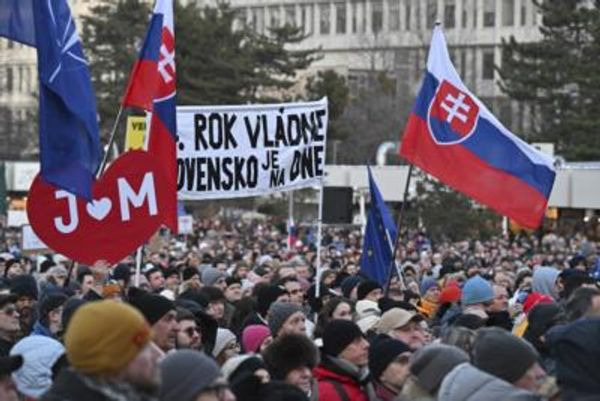
Words matter. They can elevate our nobler sentiments, lend eloquence to the mundane, corral hope, puff irony, test boundaries or swap turgid reality with whimsical rhapsody. But they can also unleash cruelty and division, braiding their way into the national conscience like a malignant cancer that feeds off our worst appetites.
It was in the latter sense that the country’s spy chief recently called for calm, pointing out in a rare public statement the connection between “inflamed language and inflamed community tensions”. “Words matter,” ASIO director-general of security Mike Burgess said.
The backdrop to his intervention was, it would seem, not so much the escalating war in Israel-Gaza but the latest exhibition of Peter Dutton’s moral degeneracy. Since Hamas’ targeted massacre of Israeli civilians on October 7, the opposition leader has flaunted his clutching illiberal tendencies, demanding among other things nationwide bans of pro-Palestinian rallies and the deportation of certain demonstrators. He’s also openly exhorted the Israeli government to make (yet another) mockery of international law in its reprisals to Hamas, and repeatedly and falsely accused the Albanese government of failing to condemn anti-Semitism within the community.
Understood in this light, Burgess’ statement spoke to what some have loosely called the “Moses touch” — the tendency of certain politicians to unashamedly pander to polarisation and division in times of community angst. By planting a stake in the ground, their overriding objective is to divide and conquer public debate by stripping it of all nuance and a common moral framework. As the middle ground is lost, moral indignation — earned and unearned — swells on both sides of the divide and the rhetoric of partisans quickly radicalises both public sentiment and policy alike.
The most enduring example is the Howard government’s Tampa lie and the policy of indefinite detention of asylum seekers that ensued, while more recent examples might include robodebt and Dutton’s mendacity on the Voice, though the full consequences of the latter remain to be seen.
It’s true Burgess’ words prompted at least some media outlets to challenge, in a manner that’s rarely seen, the safety of Dutton’s rhetoric. But what was decidedly more striking was the Trumpy twist of having the head of ASIO (of all people) emerge to defend the guardrails of democracy against abuse by elected officials.
Less obviously, though no less powerfully, was the way in which Burgess’ words focused attention on the slippery power of seemingly anodyne language to quietly colonise public debate and even erase reality. Consider, for instance, the prime minister’s recent statement that Hamas’ deadly and bloody assault against civilians wasn’t merely an attack on Israel but “an attack on Jewish people”. Consider, too, Foreign Affairs Minister Penny Wong’s suggestion last week that these war crimes were “an assault on Israel, on the Jewish people”.
Or, more explicitly still, Home Affairs Minister Clare O’Neil’s lament that “to see people attacked for their religion is a horrible and terrifying thing” — a view shared by several other members of Parliament. Or Liberal MP Julian Leeser’s statement that the murderous attack reminded “Jews across the world that in each generation we face those who seek to exterminate Jewish people from the face of the earth”.
This language, its escalating cadence, is a more subtle manipulation of reality. Far from lending “moral clarity” to Hamas’ war crimes, as Albanese claims, it reveals a staggering moral blindness, and one that clouds our understanding by erasing context. It focuses public attention not on the conditions that bred Hamas’ unspeakable and inexcusable violence — such as Israel’s decades-long illegal occupation of Palestinian territories, the 16-year-blockade of Gaza, ongoing settler terrorism and various other violations of international law — but conversely the all-consuming spectre of Hamas as “Islamist terrorists” in a vortex wholly untethered from reality.
Immerse people long enough in the assertion that Hamas’ war crimes constituted a genocidal attack on the Jewish faith as distinct from Israel and its policies, and eventually, perhaps inevitably, some will accept it as truth. That is the aim of this rhetoric. It’s slippery and insidious precisely because it deadens and renders subjective our humanity. With one hand, it frames Hamas’ war crimes as “unprovoked” and religiously motivated, and with the other, it conceals from view the volley of atrocities Israel has long visited on Palestinians.
And it’s more devious than the raw power so deftly wielded by Dutton on the home front precisely because its misleading nature is quieter, less overt. It’s not so obviously intended to fleece gullible voters for direct political gain as it is to mould or reshape common understanding of the conflict in a way that serves the nation’s manifestly biased relationship with Israel.
None of this, of course, denies the relevance of anti-Semitism in the context of Hamas. Its original charter contained undisguised anti-Semitic sentiment and incitement to hatred. The document’s 2017 update, however, removed these phrases in a manner that suggested a softening of Hamas’ position regarding the two-state solution, clarifying its dispute is not with the Jewish faith but the Zionist project, which it described as “racist, aggressive, colonial and expansionist”.
But precisely how genuine this more conciliatory tone was remains open to doubt. Though some have construed the charter’s cri de cœur “from the river to the sea” as an obvious expression of genocidal intent (because it appears to contemplate a Palestinian state that traverses territory that is now Israel), others say it’s best understood as an expression of anti-apartheid, anti-colonial rhetoric.
Among those who subscribe to the latter is Tareq Baconi, president of the Palestinian Network, who in a recent interview pointed to the “fundamental misreading” of what inspired (though obviously doesn’t excuse) Hamas’ atrocities. There’s never been an “anti-colonial struggle or struggle for decolonisation without violence”, Baconi told The New Yorker, and it’s “crucial to ground the discussion in that context because Hamas’ violence isn’t coming out of the blue — at its heart, [the attack] was about pushing back against Israeli impunity”.
Again, words matter. What lends Israel this shield of implacable impunity is in large part the deliberate and long-standing conflation of the state of Israel with Judaism and all Jewish people, including those in the diaspora. Israel is, after all, the self-proclaimed “nation-state of the Jewish people” and cites as much in its declaration of independence. Leaders such as Benjamin Netanyahu have likewise routinely claimed to represent not only Israel on the international stage but Jewish people the world over.
The obvious problem with such a stance, however, is that it all too easily provokes a situation where any criticism of Israel, however justified or benign, is automatically deflected as an attack on Jewish people and therefore dismissed as anti-Semitic. It’s in this way that the word anti-Semitism, much like the phrase Hamas terrorist or terrorist sympathiser, comes to us ready-made. To draw on George Orwell, the word “constructs reality for you”, even daring to “think your thoughts for you to a certain extent”.
Anything Israel does to defend its security and statehood can, we’re told, be morally justified, and any criticism to the contrary is not simply anti-Israel but “anti-Semitic” and racist.
A similar logic can be discerned in the usual descriptions deployed about Hamas, which, our politicians insist, comprises not militants or freedom fighters but “terrorists”. And because they’re “terrorists”, what they do is what they are and what they do is “pure unadulterated evil”. The distinction between Hamas’ chilling war crimes — their conduct — and their irreducible humanity accordingly falls off the page, leaving ample space for predictable invitations to “flatten Gaza” and kill these “savages”, these “human animals” and anyone who remains. Here, Israel’s human rights atrocities are framed as a reaction to such “evil”, fortifying both its conduct and its people’s humanity in terms that are predictable and beyond reproach.
The question is, what hope is there for nuance or understanding when expressions and ideas are so readily flattened and deprived of their ordinary meaning?
The answer is none, as so painfully exhibited in Deputy Prime Minister Richard Marles’ recent statement that Israel is, to his mind, “acting within the rules of war”. This, he would have us believe, holds despite Israel’s use of chemical weapons on civilians; despite the relentless symphony of bombs it has rained down on Gaza since Hamas’ attack; despite the “complete siege” of a population of 2.3 million, with electricity, water and food supplies cut off in gross violation of international law; despite the targeted pogroms of Palestinians by Israeli settlers in the occupied West Bank; despite the obvious illegality attached to Israel’s 24-hour evacuation order; and despite the deliberate bombing of a road that Israel had declared “safe” for evacuation.
As international law barrister and special rapporteur to the United Nations Professor Ben Saul has written, if Marles truly believes these tactics fall within the “rules of war”, then he is “poorly briefed”.
Similar concerns apply to all those politicians who have so readily amplified Israel’s right to self-defence and so quickly forsworn the sanctity of the right to protest in their condemnation of pro-Palestinian marches. What’s left is a slippery authoritarian-inflected populism that whistles the dirge of our broken ideals and tugs at our fraying humanity.
So whatever Albanese says about “moral clarity”, it’s surely clear that the only politicians who can plausibly stake any claim to it in this barren landscape are those, such as the Greens and the few honourable exceptions in Labor, who recognise that there’s nothing controversial about calling out human rights abuses, wherever they occur and whoever commits them.
The point is words matter — they have the power to grant humanity and to snatch it away. And at this moment, they’re being wielded by our government (and the opposition) in a manner that favours Israel and dehumanises Palestinians. Even the description “Israel-Hamas war” is grossly misleading in so far as it implies Israel is merely targeting Hamas, not civilians.
In truth, there’s little that’s unfolding in Gaza today that can rightly be described as an unfortunate corollary to Israel’s right of self-defence. Indeed, it’s nothing less than the targeted and collective punishment of Palestinian civilians — a “mass ethnic cleansing” warns a United Nations human rights expert, with all the unsparing human tragedy that implies.
Anyone who denies this is either deceived or doing the deceiving.







